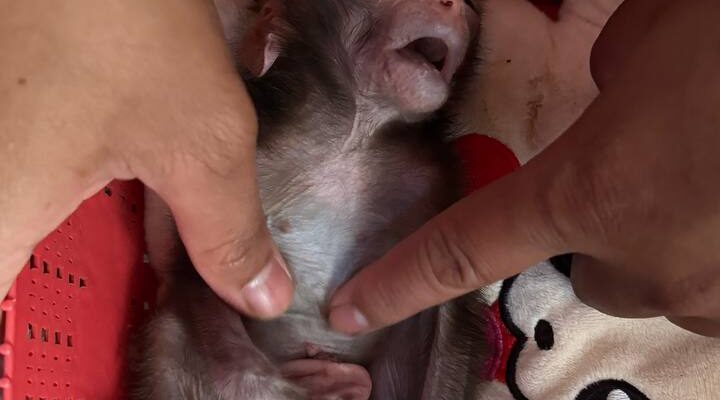In the heart-wrenching world of animal health, stories of suffering and loss often go unnoticed. One such story is that of a poor little baby monkey who tragically passed away due to a severe intestinal inflammatory disease. This heartbreaking event sheds light on a condition that affects not only humans but also vulnerable animal populations.
Intestinal inflammatory diseases in animals, including monkeys, can be caused by a variety of factors, including infections, genetic predispositions, or environmental stressors. For young primates, whose immune systems are still developing, these conditions can be particularly devastating. The baby monkey’s symptoms included severe abdominal pain, diarrhea, and weight loss — signs of the inflammation wreaking havoc within its delicate digestive system.
Despite the best efforts of veterinarians and caregivers to manage the disease, the little one succumbed to the condition. The loss highlights the fragility of life in the animal kingdom, especially for those who are exposed to risks in the wild or captivity. Intestinal diseases are a leading cause of death in young primates, as their bodies struggle to cope with inflammation that disrupts their ability to absorb nutrients and maintain vital bodily functions.
This tragic event serves as a reminder of the importance of proper care and monitoring for animals in zoos, sanctuaries, and research settings. It also calls attention to the need for further research into the causes and treatments of intestinal diseases in animals. While it is painful to witness such loss, it brings awareness to the often-overlooked health issues affecting our closest animal relatives.
In memory of this poor little baby monkey, we must continue striving to improve the health and well-being of all animals, ensuring that future generations do not suffer the same fate.



